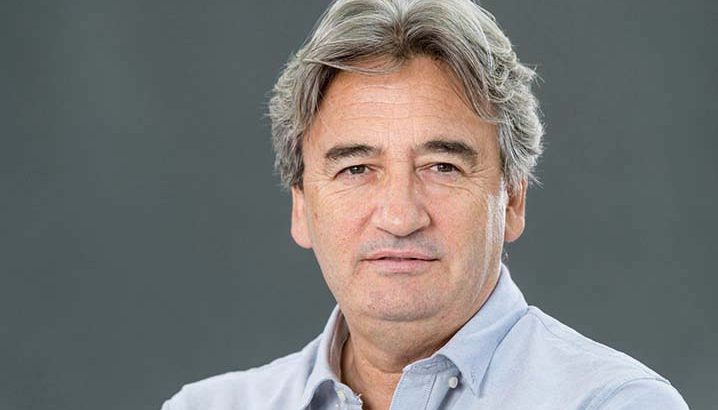How should we commemorate the Irish Civil War – the centenary occurring at the turn of the year? If it were left to Fergal Keane, the renowned war reporter, it wouldn’t be ‘commemorated’ at all.
He’s really troubled by that word ‘commemoration’ – with its overtones of honouring an event – because he’s seen so much of the sorrow that war and civil conflict causes. He’s seen it over three decades in the North of Ireland, in Rwanda, Iraq and the Balkans; he quit war reporting 18 months ago because he’s been suffering from conflict-induced Post Traumatic Stress Disorder (PTSD). “War left me traumatised – it damaged my mental health,” he says. He broke down and couldn’t return to war zones.
Not only does the experience of conflict cause deep psychological (as well as physical) wounds, he believes: but there is epigenetic trauma – transmitted through families across the generations. He is deeply distressed by the history of his own home place, Listowel, Co. Kerry, where there were “agonies of revolution and civil war”. His grandmother and great-uncle were IRA activists in the War of Independence and witnessed terrible things. Then, even more terrible things were experienced in the Civil War. Exploring the archives now available, Fergal perceives some of the fallout: the alcoholism, depression, “troubles with nerves” that followed for decades afterwards.
Church
One Listowel man, Con Brosnan, went to the church every day for the rest of his life to pray for the men he had killed. Fergal reiterated the story of the killing of James Kane, a fisheries inspector in Listowel in June 1921. The IRA headquarters ordered his execution because he was suspected of passing information to the RIC, the police force, then supplemented by the Black and Tans. Mr Kane was taken to Knockanure on a beautiful summer’s evening where the execution was to be carried out. A priest was called to administer the last rites. The priest asked if the man’s life could be spared, but was told that orders from HQ must be followed. Mr Kane was instructed to write his last will, which he did, and asked that his body be left near Listowel. He wrote to his children: “I give you all my blessing and pray God may protect you all. Pray for me and get some Masses said.” He added that he received “the greatest kindness” from his captors.
The executioners and their victim then knelt and said a decade of the Rosary together. Mr Kane remained praying until the end. The killing squad, which included Mr Brosnan, Dan Enright, Denis Quille and Brian O’Grady – who became Kevin O’Higgins’ close associate. They agreed that James Kane had been “a good man”.
Fergal Keane was giving an impassioned talk at the West Cork History Festival last weekend (he has also recounted the story of James Kane in his affecting history-memoir Wounds.) I’ve seldom seen a man so haunted by the accounts of war as Fergal is. He has come to hate conflict. “I’m up to here with killing and death.”
His proposal to replace commemorations is – just tell the stories. Say what happened. Tell the stories of the defeated as well as the victors, the losers and the silenced. Though his family was Republican, Fergal has sympathy for the RIC men – 80% of the ordinary constables were Catholics – who were targeted and killed. Attempts to include them in public commemorations have proved controversial: so just tell their stories.
Fergal, now 60, has changed from reporting war to healing its damage: he’s been involved with The Wave Trauma Centre in Belfast, which addresses the psychological scars of war, arising now from the northern troubles.
He gets angry and impatient with talk of heroes and villains. “Surely to God we’ve moved beyond that?” We must see war as it is – the pooling of blood on the floor, the pieces of human skin hanging from trees. Here is a man with a mission, and a crusader for truth.
***
All honour to boxer Kellie Harrington who has lifted the nation by winning gold at Tokyo – and bravo to all athletes who won Olympic medals. But I’d also like to applaud Sarah Mortimer from Enniskerry, Co. Wicklow, who has just swum the English Channel in 13 hours, 35 minutes, Dover to Cap Gris Nez. She’s not a competitive swimmer and only began training three years ago.
She swam the Channel for the sightsaving charity Orbis and their work in Ethiopia. Sarah, who is 48, is dedicated to helping to prevent blindness in Africa, especially among children. Such a worthy cause. And I hope she also had a satisfying swim – and the five minutes she was allowed in France!


 Mary Kenny
Mary Kenny Fergal Keane is war weary
Fergal Keane is war weary 